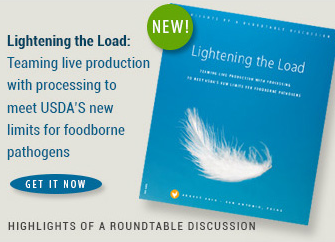Letters of the law: VFD, Rx and OTC
Who decides which medications will require a veterinary feed directive (VFD), prescription (Rx) or be available over the counter (OTC)?
That’s in the hands of FDA or, more specifically, FDA’s Center for Veterinary Medicine.[1]
A VFD drug is an antimicrobial deemed medically important to humans that is permitted for use in or on animal feed.[2] As of January 2017, all VFD drugs will require a VFD from a licensed veterinarian for use in poultry and livestock. Drug labels will clearly indicate which ones require a VFD.
If at least one VFD drug is in a combination — for instance, one drug in an approved combination is a VFD drug and another is an OTC drug — a VFD is still required.
So when is an Rx needed? All medically important antimicrobials to be administered in the drinking water of poultry and livestock will require an Rx from a licensed veterinarian. This rule also kicks in January 2017.
As always, OTC feed medications, such as ionophores, synthetic anticoccidials, bacitracin and bambermycins, will not require an Rx.
[1] #120 Guidance for Industry Small Entity Compliance Guide Veterinary Feed Directive Regulation Questions and Answers. FDA. http://www.fda.gov/downloads/AnimalVeterinary/GuidanceComplianceEnforcement/GuidanceforIndustry/UCM052660.pdf Accessed December 15, 2015.
[2] Veterinary Feed Directive Requirements for Veterinarians. FDA. http://www.fda.gov/AnimalVeterinary/DevelopmentApprovalProcess/ucm455416.htm Accessed December 15, 2015.
Posted on April 22, 2016

















